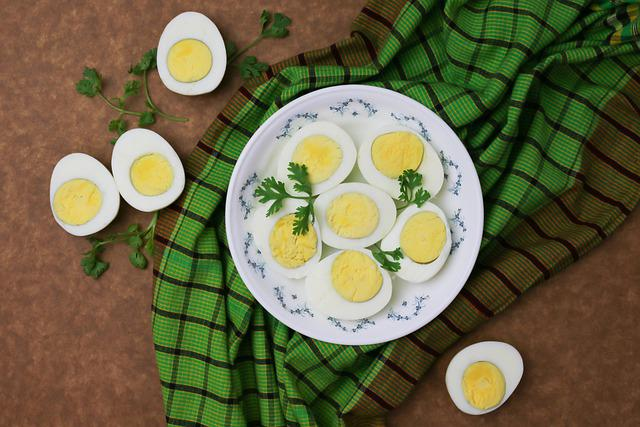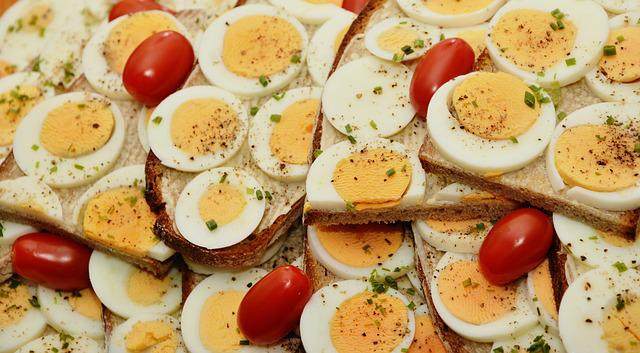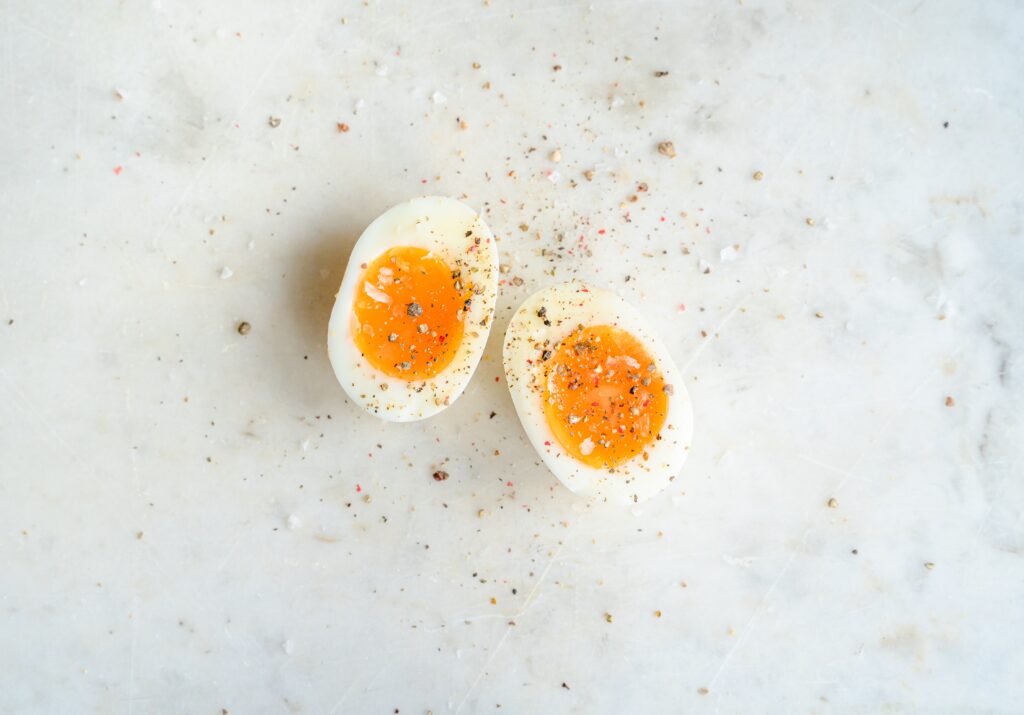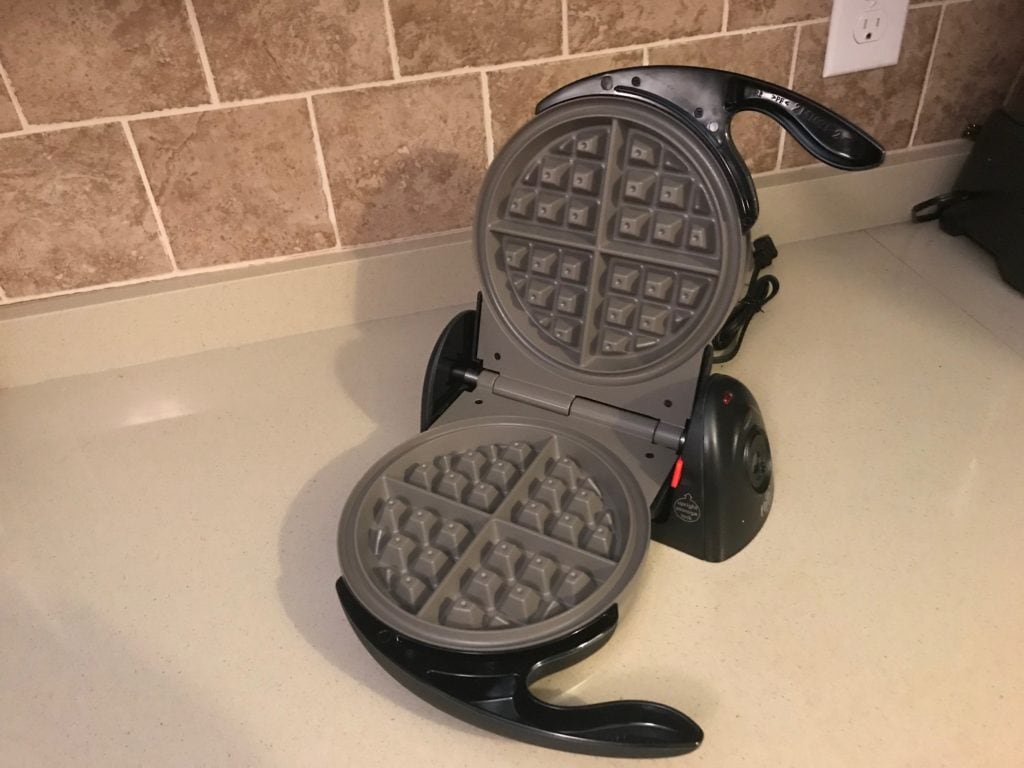How can I tell if my eggs are cooked properly? Tips for a perfectly cooked hard-boiled egg
Many people love hard-boiled eggs, but they can be tricky to cook perfectly.
The biggest problem is knowing when they’re done. If you overcook them, they’ll be dry and rubbery.
If you undercook them, the centers will be runny. That would be great for soft-boiled eggs, but that’s not what you’re looking for.
So how can you tell when your hard-boiled eggs are cooked just right?
The easiest way is to use a timer.
Start by carefully placing the raw eggs in boiling water for 10 minutes, then take them out of the boiling water and put them in a bowl of ice-cold water.
Let them sit for a minute or two, then crack one open to check it. The center should be cooked through but still moist.
Once you’ve mastered this cooking process for perfect hard-boiled eggs, feel free to experiment with different cooking times to find the perfect hard-boiled egg for your taste.
You can also add other ingredients to the boiling process, such as vinegar or salt, which can help the eggs hold their shape better during cooking.
However you like them, hard-boiled eggs make a delicious and satisfying snack or a great addition to many meals.

Here are some tips on how to handle boiling eggs:
- Make a small hole in the broader end of the egg with a thumbtack before cooking.
- Cook eggs in simmering water, not boiling water.
- If an egg does crack while cooking, add a teaspoon of vinegar or lemon juice to the water to help keep the egg white from running out.
- Eggs can be stored in the refrigerator for up to one week.
- To test if an egg is still good, drop it into a bowl of water. If it sinks, it’s still good. If it floats, it’s bad and should be thrown out.
Hold the hard-boiled eggs up to the light
The white of the egg should allow enough light to pass through it. The yolk will be visible if it is still uncooked.
When a hard-boiled egg has fully solidified, the center light will be unable to transit through it, revealing a difference between a raw and cooked egg.
If you’re still having trouble detecting cracks, a flashlight and shining it from the opposite side of the egg may be useful. The egg is now between you and the light source.
It will be simpler to see if your egg is cooked now. If you can see any yellow in your hardboiled egg, it isn’t yet fully cooked. Your
I attempted this test with a flashlight and was unable to get it to function on either a cooked or uncooked hardboiled egg.
I know that there are specialized lights that you can buy for this, but it doesn’t seem like it’s worth it.
Shake the hard-boiled eggs
This is a good test to determine whether the boiled eggs are cooked through.
Start by shaking one of the eggs. If you feel like it is solid, it is ready. But if you feel a little liquid in it, it’ll feel like it’s a little unstable – then put it back for another minute.
To get a sense of it, you may test or practice against an egg you are familiar with being cooked.
To be fair, this test does work, but it takes more practice than the egg spinning test above. You could have finished the other exam by the time you finish this one. Furthermore, do not forget that once you remove an egg from a boiling pot, it will be hot and difficult to grasp for any length of time.
Take the temperature of the hard-boiled egg
Another way to test for doneness is to use a quick read thermometer.
Carefully remove the egg from the spoon.
Discard the water and set the egg on a paper towel. Hold an infrared thermometer about 2-3 inches away from the egg and if it reads above 160F, then the egg is done. This is my least favorite way to test whether an egg is hard-boiled.
This method of checking egg doneness requires that the egg be rested for a bit. This is a variable since some people will wait 10 seconds and others will wait 30 seconds.
This only works with boiled eggs that have been cooked for less than 2 minutes. At this point, the inside liquid of the egg is still hot enough to cook the outside of the egg.

Spin the Hard-Boiled Egg
The easiest and most straightforward test is to place a solid boiled egg on a flat surface and spin it. The yolk of a hard-boiled egg will spin easily.
If there is a wobble noticed as the egg begins to spin, this is due to the fact that there is still some liquid in the shell, which prevents a nice, consistent spin.
The yolk of a soft-boiled egg or raw egg, on the other hand, will not spin as readily since there is still some liquid present inside the egg.
Drop the hard-boiled eggs into warm water and look for tiny air bubbles
If the egg is still uncooked, putting it into warm water will cause it to bubble. When the eggs are submerged, tiny bubbles are released from the egg.
There will be no bubbles if the egg is fully cooked.
I tried this approach, and it did work, but the bubbles are so tiny that you must examine them very carefully. As a result, the egg bubble test vs. egg spin test – although the latter is superior in terms of practicality – is no contest.
Eat the Egg
How do you know when your hard-boiled eggs are done?
The final and most obvious way to tell if your hard-boiled eggs are done is just to eat them!
Are they uncooked eggs? Soft boiled eggs, medium boiled eggs, or hard-boiled eggs?
Just go ahead and eat the eggs!
If you had any kind of cooking process then you can be sure that you’re not eating an uncooked egg. And besides, people drink raw eggs all the time and don’t get sick.
So although I’m not advocating the consumption of raw eggs, I think it’s perfectly fine to experiment a little with your hard-boiled eggs to see how you really like them.
In Conclusion – How to tell when your hard-boiled eggs are done
If you’re like me then you love to eat boiled eggs because they’re a nutritious source of protein and can help you maintain a healthy diet and can even help you keep fat off.
However, how can you know when your hard-boiled eggs are done?
Boiling eggs can be a pain but eggs are delicious!
I hope that this article taught you a few tricks and tips on knowing when your hard-boiled eggs are done.
If you have any questions, please leave them in the comments below.
Related Posts
-
West Bend Egg Cooker Review
In-depth review of the West Bend Egg Cooker If you’re reading this article, chances are…
-
How to Make Waffles Without Baking Powder, Eggs, or Milk
Are you looking for an Easy Belgian Waffle Recipe that has no Baking Powder, no…
-
Nordic Ware Egg Waffle Pan Review
This is a review article for the Nordic Ware 01890 Egg Waffle Pan by Nordic…






